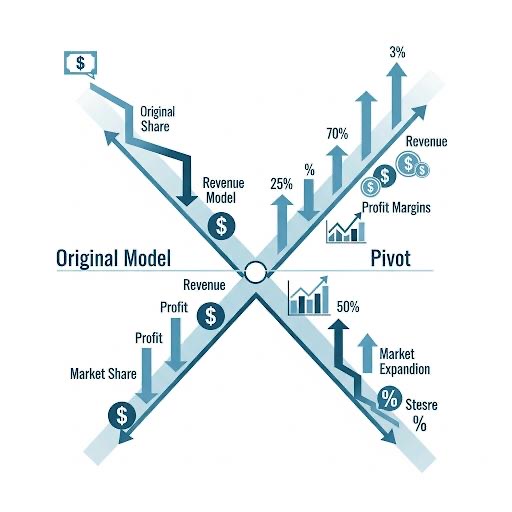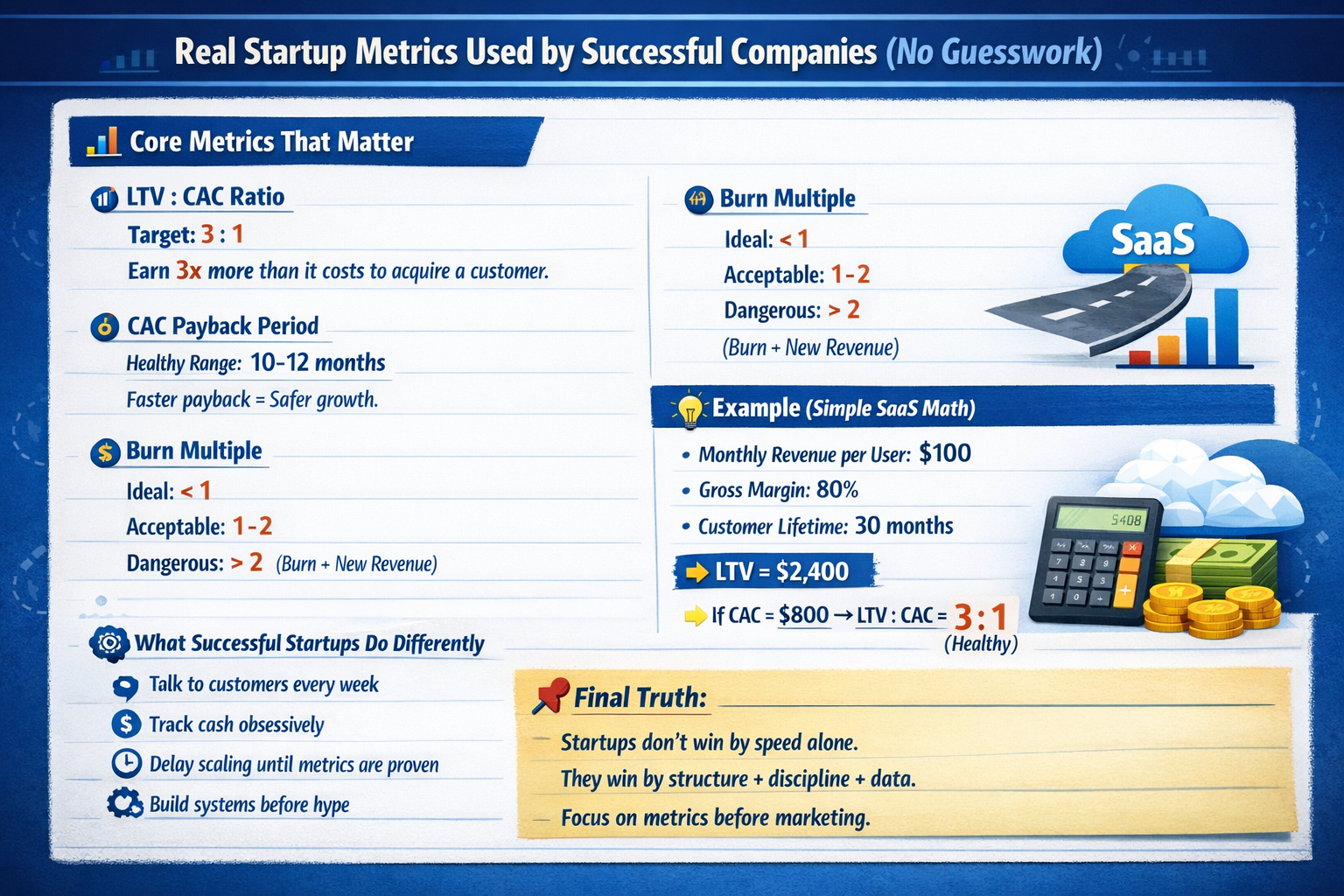Back
Vivek Joshi
Director & CEO @ Exc... • 9m
Decoding Unit Economics for Early-Stage Startups Unit economics is your startup’s compass. It tells you if scaling will make you rich—or broke. Here’s how to decode it, step by step: 1. Define a Unit: This could be a customer, order, or subscription—whatever drives revenue. 2. Calculate CAC (Customer Acquisition Cost): Total sales & marketing spend ÷ new customers acquired. 3. Determine LTV (Customer Lifetime Value): Average revenue per user × gross margin × customer lifespan. 4. Find Contribution Margin: Revenue per unit – variable costs. 5. Analyze Payback Period: How long does it take to recover your CAC? 6. Benchmark Your Ratios: Aim for LTV:CAC > 3 and CAC payback < 12 months. Insight: Great unit economics don’t guarantee product-market fit, but bad ones guarantee cash burn. Nail this early—it’s how you turn experiments into scalable, fundable businesses. Early signals matter. Watch them closely. Scale only when the unit math works.

More like this
Recommendations from Medial
Vivek Joshi
Director & CEO @ Exc... • 9m
Mastering Unit Economics Unit economics isn’t just a metric—it’s your startup’s financial DNA. It reveals whether each customer adds value or drains cash. Here’s how to build your unit economics from scratch: 1. Define Your Economic Unit What drives
See More
Swapnil gupta
Founder startupsunio... • 9m
✅ Must for Business Students 🥇10 Most Important metrics that are asked by investors. 1. Revenue Growth Rate 2. Monthly Recurring Revenue (MRR) 3. Burn Rate 4. Cash Runway 5. Gross Margin 6. Customer Acquisition Cost (CAC) 7. Customer Lifetime Val
See MoreVivek Joshi
Director & CEO @ Exc... • 8m
Unlock the secrets of startup success with our comprehensive guide on Decoding Unit Economics! In this video, we break down the critical components that can determine the fate of your early-stage venture. Learn how to define your unit, calculate Cust
See MoreSwapnil gupta
Founder startupsunio... • 9m
🥇10 Most Important metrics that are asked by investors. 1. Revenue Growth Rate 2. Monthly Recurring Revenue (MRR) 3. Burn Rate 4. Cash Runway 5. Gross Margin 6. Customer Acquisition Cost (CAC) 7. Customer Lifetime Value (LTV) 8. Churn Rate 9. Unit
See MoreKarnivesh
Simplifying finance.... • 1m
I’ve noticed that many startups celebrate users, orders, and revenue before asking the hardest question: does each unit actually make money? That’s what unit economics reveals. Strip away the hype, and it comes down to whether a business earns more
See MoreVivek Joshi
Director & CEO @ Exc... • 8m
Pivoting -When do the numbers tell you it's time to drastically re-evaluate your startup's core business model?" Financial Red Flags: Consistently Negative Unit Economics: Losing money on every sale with no clear path to profit? Your Customer Acquis
See More
Download the medial app to read full posts, comements and news.















/entrackr/media/post_attachments/wp-content/uploads/2021/08/Accel-1.jpg)




















